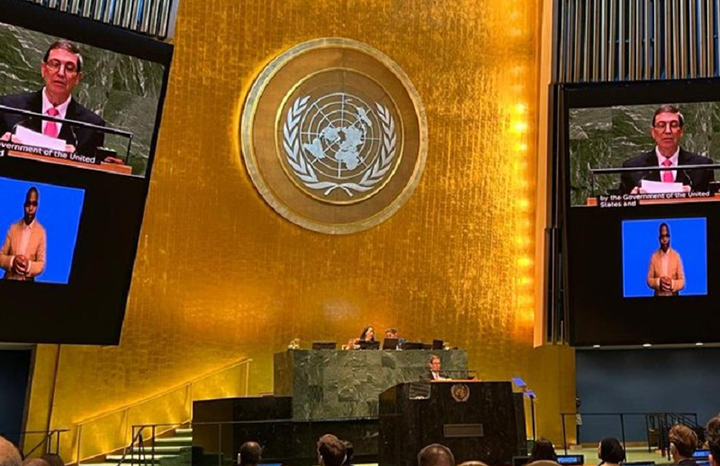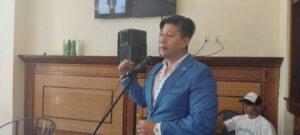Cuban Foreign Minister Bruno Rodríguez today called for greater political will at the UN General Assembly to address the structural and moral failures of the international system that prevent progress towards a just future, Prensa Latina reported in a dispatch to the United Nations.
Speaking at the Summit of the Future, the foreign minister reviewed the challenges facing developing nations and the need for truly profound reforms to eliminate them.
«The peoples need less interference and more solidarity; less unequal exchange and more equity; less politicisation and double standards and more dialogue, cooperation and respect for their inalienable right to choose their political, economic, social and cultural system,» he said.
Rodríguez recalled the challenges posed to his country by the hostile policy imposed by the US government, including inclusion in the arbitrary and unilateral list of states that allegedly sponsor terrorism.
This, he insisted, is the main obstacle to the well-being and development of the Caribbean nation.
At the same time, the planet is suffering the effects of climate change without opulent societies putting a stop to the consumerism that generates it and without sufficient political will to channel the necessary funds for the Sustainable Development Goals or real debt relief.
The minister insisted that for millions of people in the Global South, the possibility of a decent future is and will remain a utopia.
«It will be difficult to believe in that promised future as long as developed countries oppose deep reform of the international financial architecture, whose discussions should be centred at the United Nations,» he said.
If these demands have been watered down in the Pact for the Future, should we believe in the promises of greater access to the resources indispensable for our development, questioned the head of Cuban diplomacy.
The top diplomat was speaking on the opening day of the Summit, which opened its doors on Sunday morning with the approval of the Pact for the Future, an ambitious UN project for a reform of global governance.
Despite the optimism surrounding the text, the main voices of the organisation assure that the real change will come with the actions and political will of the states, particularly the most powerful ones.




